Posts Tagged ‘Refugees’
Why is the Path Vital to Resettlement in the Fox Valley?
The Path is one way that community members partner with us in this important work of welcoming refugees through giving a monthly gift.
Read about one of our Pathmakers today and what drew her to this work.
How did you get connected with the work of welcoming refugees?
It started years ago when I was hearing so much in the news about displaced people. It felt
uncomfortable to hear that news and then turn off the TV and return to my regular life. I started to
research online about different organizations who had boots on the ground in helping people. There are lots of good organizations doing good work. I wanted to be a part of their work and decided to offer financial support. I found World Relief, which has a local office and was also located in places around the world where people desperately needed help.
Why did you decide to join the Path?
Looking at it from two different angles I decided to join World Relief because, after researching, I felt good about supporting their work. And I wanted to give monthly because it meant my giving would be consistent and I wouldn’t ever forget to give.
What motivates you in welcoming refugees?
Reading through the Old Testament I was surprised by how many times God commands his people to care for the widow, orphan, and the sojourner. By welcoming refugees, I am complying with God’s teaching. Refugees leave their home country out of necessity, not by choice. I think that as a Christian I am called to respond to that need.
How do you think you have changed since becoming involved in this work?
I have become much more compassionate to people who are different from me—different nationalities, experiences, and religions. It’s good to be different. I was more judgmental of people who were different or thought differently from me, but now I have more compassion and understanding of people with different backgrounds. I appreciate how people can bring different cultures into my world. People who think differently help a community to stretch and grow.
Do you have any advice for someone who wants to help but doesn’t know how?
Take a step in a direction and see where it leads. It’s hard not to be frozen by indecision and not know what to do. After all, what can one person do in the face of so much global conflict and disaster? After taking the first step you will be able to take another. One person can’t create change on their own, but change will happen when we work together.
How can you learn?
I try to keep things local. Try to learn about what is going on in your community that you can be a part of. Do some research online. Be willing to get to know people in your community who are different from you. And as you work with others who may disagree with you, always be kind and be open to other points of view. For people who are readers I recommend the book, “Inalienable” written by Matthew Soerens.
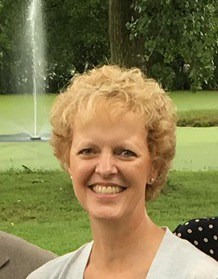
Join the movement and become a Pathmaker today!
How is World Relief Helping Refugees in Chad?
We cannot let them go hungry during their Eid. We cannot see them crying when it is supposed to be a celebration of triumph.
Did you know, the country of Chad hosts the second-highest number of refugees per capita in Africa? It’s one of the reasons we opened a new office in Chad earlier this year. And yet, we couldn’t have foreseen that the recent conflict in Sudan would push more than 179,000 new refugees into Chad. We have been placed for such a time as this.
Prior to this conflict, Chad had already welcomed nearly 600,000 refugees including individuals from Sudan, the Central African Republic, Niger and Cameroon. As one of the poorest nations in the world, Chad does not have the resources to handle the mass influx of refugees from Sudan.
An urgent humanitarian crisis is rapidly unfolding at the Chadian border. Like you, our hearts are broken and we’re ready to respond. Today, we’re sharing an update on the evolving crisis and how you can help refugees in Chad.
Who are the refugees arriving in Chad?
The current influx of refugees are from Sudan, specifically West and Central Darfur. Most of those arriving are women and children as it is almost impossible for men from certain tribes in West and Central Darfur to make the journey due to the targeting of males from different tribes.
What makes this situation especially unique is that World Relief has a personal connection to many of the refugees entering Chad. These are families and individuals that we’ve served through our office in Sudan. Our teams have known these people for a long time and have built relationships with them. They have walked alongside and witnessed their Darfurian brothers and sisters regrow decimated communities and rebuild livelihoods. The response to this current crisis is deeply personal as much as it is professional.
Many refugees arriving in Chad are doing so without food, water, shelter and other protection measures. Many will face hunger, thirst, exploitation or even death. There is an immediate and urgent need to respond in order to save the lives of the people who are facing some of the most dire circumstances imaginable.
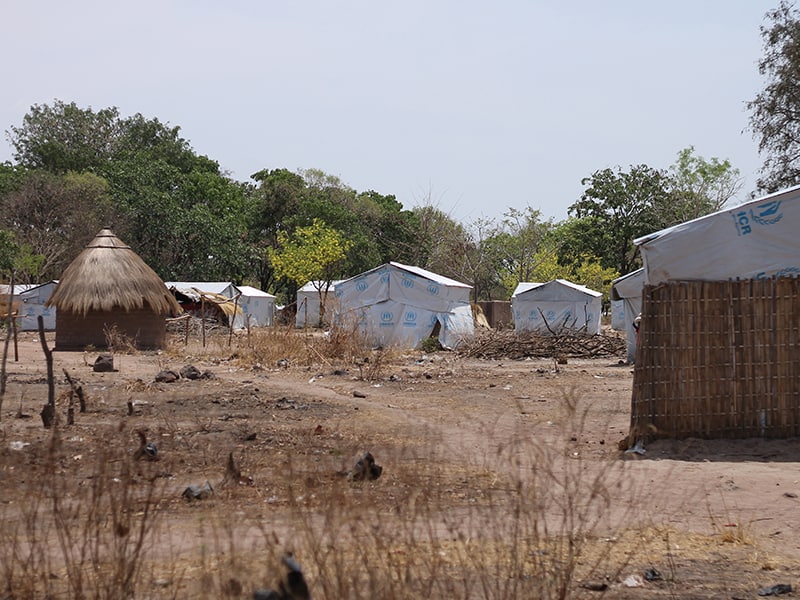
Tragedy During the Holiday Season
To make things even more challenging, many Sudanese people find themselves away from home, in a foreign land, during the coming Eid-al-Adha — one of the most significant holidays celebrated in Islam.
The word Eid, which means “feast or festival” is used to refer to two major holidays. For our Muslim brothers and sisters, Eid al-Adha, or the “Feast of Sacrifice,” falls on June 28th this year. The holiday honors Abraham’s willingness to sacrifice his son in obedience to God’s command and is a time when many Muslims give generously to help those in need. Today, they should be celebrating with family, friends, neighbors and relatives. Instead, they have been displaced in a foreign land.
Despite religious differences, as Christians, we are commanded to take care of our fellow human beings. As Matthew 25:40 says (NIV), “Truly I tell you, whatever you did for one of the least of these brothers and sisters of mine, you did for me.”
We pray for our brothers and sisters who are experiencing life’s most heartbreaking circumstances. May they feel seen, heard and protected during the Eid and throughout their journey in refugee camps.
How You Can Help Refugees in Chad
An emergency response team composed of World Relief staff from around the world arrived in Chad on June 12, 2023 to support World Relief’s Chad office in a cross-border refugee response. There are reports of mass casualties and bodies waiting to be buried along the border. A horrific and heartbreaking scene.
Crisis response is a tangible way for us to extend the love of Christ to those who are suffering in their greatest time of need. We cannot control when a crisis strikes. But when it does, God calls you and me to respond with compassion – wherever and whenever help is needed most.
We invite you to join us in prayer and by giving to our response effort in Sudan and Chad. World Relief is aiming to raise $400,000 for this response. One hundred percent of funds raised will be used for direct aid for vulnerable families impacted by this crisis.
With your help:
- $10 can provide water for a family
- $20 can provide clothes for a child
- $30 can provide meals for a family for a day
- $75 can provide blankets and a solar lamp
Your generosity will go directly to teams on the ground in Chad to provide a safe haven for Sudanese refugees with access to food, clean water, basic necessities and temporary shelter. It will also help families pay for burial expenses for the loved ones they’ve lost.
For nearly 80 years, World Relief has been responding to crises and disasters, providing emergency relief and building resilience where and when it’s needed most. It is our desire and hope to see a world free from suffering and injustice.
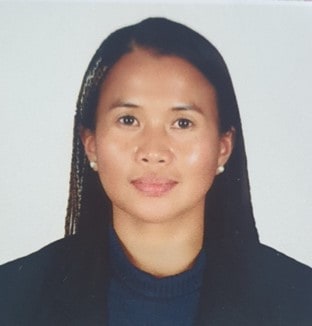
Carrell Cataya Magno is Protection Program Manager at World Relief Sudan.
Carrell has nearly 20 years of experience working in complex humanitarian environments. She has background in general protection, human rights, violence prevention, community empowerment and coordination of humanitarian response. Prior to joining World Relief, she worked with Nonviolent Peaceforce in South Sudan for more than six years. She also worked with a number of NGOs in the Mindanao region of the Philippines, and she has extensive experience working in remote locations. Carrell has demonstrated success in negotiating with armed actors at the local level for access for humanitarian workers (both her own team and others) and protection of civilians’ rights. Carrell holds a Bachelor of Arts in Community Development from the University of the Philippines and a diploma in Sustainable Development Studies from Mindanao State University.
A Prayer for Refugees
On June 14, a ship carrying migrants bound for Europe capsized in the Mediterranean Sea. Despite search and rescue efforts, hundreds are feared dead.
Even as we celebrate the strength and resilience of refugees this World Refugee Day, we lament that, for so many people seeking safety and a more hopeful future in a new land, the route is often marked by unnecessary hardship and trauma.
At World Relief, we are mourning with those who have lost loved ones in this tragedy, and we pray that God would give us the courage to not look away.
Will you join us in praying for refugees and those seeking safety around the world?
Father, I still my heart and mind to focus on you. Speak, your child is listening.
(Pause in silence and prayer)
Read: “The Lord your God is supreme over all gods and over all powers. He is great and mighty, and he is to be obeyed. He does not show partiality, and he does not accept bribes. He makes sure that orphans and widows are treated fairly; he loves the foreigners who live with our people, and gives them food and clothes. So then, show love for those foreigners, because you were once foreigners in Egypt.” — Deuteronomy 10: 17-19 (GNT)
How wonderful and powerful you are, Lord. Help me to reflect you and love like you.
(Pause in silence and prayer)
Today, I pray for those who are vulnerable and who may not be able to see your might and presence in their lives at this moment. I pray for those fleeing violence, wars and persecution; be their guide and comfort. For the millions of refugees around the world, waiting for justice and a new home.
(Pause in silence and prayer)
I pray for my city and community. May it be a place of safety, support and solace for those in distress.
(Pause in silence and prayer)
Lord, I think about our nation’s leaders and government. May they use their positions of power to work towards justice and righteousness.
(Pause in silence and prayer)
I pray for your church, that it would be a city on a hill, shining bright as a beacon for all who seek a new and better way.
(Pause in silence and prayer)
Lastly, I stand firm, covered with the armor of God, and pray against the work of the enemy, who comes to kill, steal and destroy.
(Pause in silence and prayer)
I offer this prayer to you and declare that yours is the kingdom and the power and the glory forever. Amen.
Refugee Stories: Meet Malian
There’s someone we’d like you to meet. At just 16, Malian was forced to flee his home in Burma. For the next 15 years, he and his young family waited for a place where they could rebuild their lives. This is his refugee story.
Every June, we invite people like you to celebrate World Refugee Day — a day that honors the strength, courage and refugee stories of people like Malian. Will you help ensure more families like his can find a safe place to call home?
What is the Displacement Crisis?
Today, about 6 million people live in refugee camps. They’ve managed to flee from the risk of persecution in their home country, and now they are forced to wait. Often, conditions in camps are less than subpar. Access to water and healthcare is difficult, and refugees are reduced to living in tents for years — or even decades at a time. Entire families and generations have been born and grown up inside camps originally meant for temporary housing. It’s often difficult to obtain citizenship or work authorization, and millions of refugees are stuck in limbo, hoping for a chance at a new opportunity.
The latest figures from UNHCR, the United Nations Refugee Agency, show that there are about 103 million displaced people worldwide in over 134 countries. Projected figures estimate that the number of displaced people will grow to 117.2 million in 2023. What is displacement and how does it affect our communities? Here is an overview of what it means to be displaced, and why we should care.
There are many different categories of displaced people.
Let’s start with the different legal statuses of displaced people. You may have heard terms such as asylum-seeker, refugee, or internally displaced person. These different statuses each have a strict legal definition, and each is given different rights and protections.
What is an asylum-seeker?
An asylum-seeker is a person who has left their country of origin and is seeking protection in another country. However, they have not yet been legally recognized as a refugee and are waiting for a legal decision on their asylum claim. When it was founded, the United Nations declared that seeking asylum from persecution is a human right, and doing so is clearly outlined in the Universal Declaration of Human Rights. All people, no matter their origin, have a right to live in safety.
The latest figures show that roughly 4.6 million asylum-seekers are waiting for a decision on their asylum claims. In the United States, the asylum process can take from around 6 months to several years.
What is a refugee?
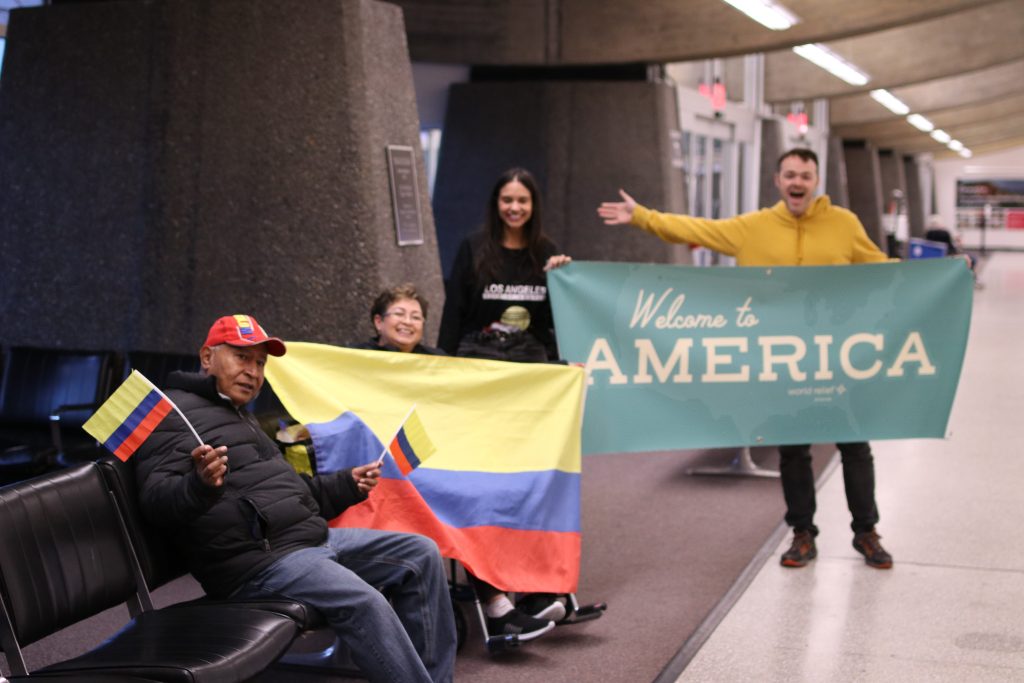
As of today, there are about 32.5 million refugees worldwide. The term “refugee” was defined by the 1951 Refugee Convention. Refugees are people fleeing conflict or persecution. They are unable or unwilling to return to their country of origin based on a fear of persecution based on five categories: race, religion, nationality, political opinion, or membership in a particular social group.
Once a person is granted refugee status, they are granted certain legal rights, again outlined in the 1951 Refugee Convention. For example, one key principle is the idea of non-refoulement. It ensures that states cannot send a refugee back to a country where they face serious threats to their human rights.
What is an internally displaced person?
Internally displaced peoples, or IDPs, are those who have been forced to leave their homes due to armed conflict, general violence, or human rights violations, yet have not crossed an international border. IDPs may not have the financial means to undertake such a journey. Many suffer from health conditions that render them unable to flee the country. Some IDPs are surrounded by conflict and stuck in a war zone.
IDPs face similar challenges to refugees and asylum-seekers, yet do not enjoy the same legal protections. They are often located in areas where aid organizations cannot reach them. Their national governments are responsible for their protection; yet these same governments may be unable to grant them protection or may simply refuse to do so.
While refugees most commonly make headlines, there are currently 70.1 million IDPs, more than twice the number of refugees.
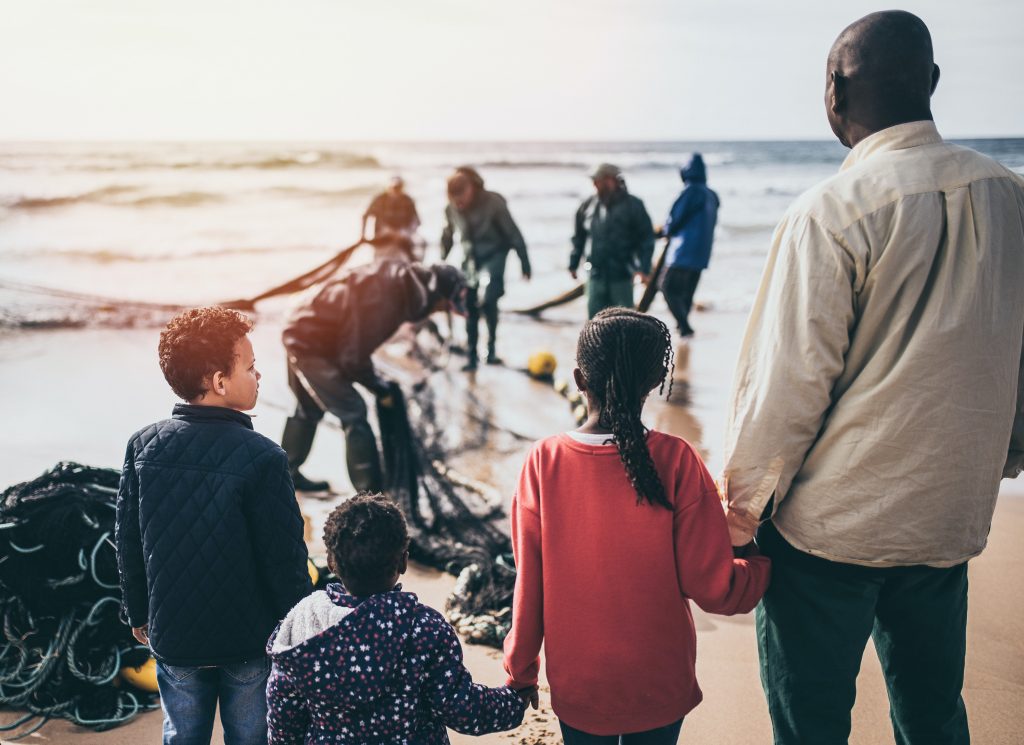
What is statelessness and how does it relate to displacement?
Statelessness can hinder freedom of movement, the ability to buy property, vote, open a bank account or even get married. Moreover, stateless people are excluded from government initiatives. Recently, many stateless people were left out of COVID-19 vaccinations or relief packages — they were considered invisible to governments.
Currently, there are around 700,000 Rohingya, an ethnic group which the state of Myanmar refuses to recognize and grant citizenship to. Rohingya are asylum-seekers and refugees like many others; yet they lack birth certificates, access to healthcare, and strict restrictions on their freedom of movement.
Other people in need of international protection
This category was created by UNHCR in 2022 and includes people who are outside of their country of origin, yet don’t qualify for typical refugee status. These people likely need international protection, especially protection against forced return, including access to basic services on a temporary or long-term basis. UNHCR estimates that there are about 5.3 million in need of other international protection.
How do countries address those left out of the refugee framework?
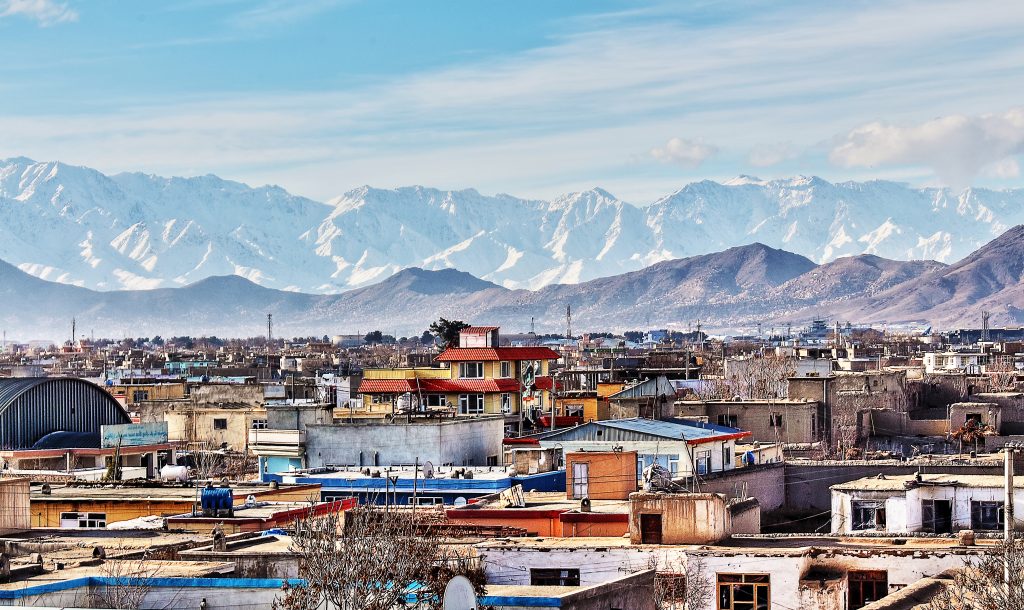
Modern displacement crises have put stress on the refugee framework, showing how its narrow definition, while important, can sometimes leave out equally vulnerable populations.
For example, the majority of displaced people in Venezuela and Ukraine do not qualify for refugee or asylum status, instead relying on temporary protection statuses or humanitarian parole – these statuses grant the recipient the right to live and work in a specific country, but only for a limited amount of time. However, countries can extend these statuses indefinitely.
The sudden withdrawal of U.S. troops from Afghanistan prompted the government to grant Afghans humanitarian parole to temporarily reside in the United States.
Addressing the displacement crisis means understanding its root causes.
Understanding the root causes of displacement can help us respond better to people’s protection and assistance needs. It helps us prevent crises which cause families to risk their lives in pursuit of safety. It ensures that today’s displaced will not be displaced again.
UNHCR splits factors leading to displacement into two major categories: drivers and triggers. Drivers are the underlying structural factors that combine, causing a crisis to erupt. For example, there may be:
- Environmental drivers, such as desertification, or climate change.
- Social drivers, such as limited education opportunities or inter-communal tensions.
- Political drivers, such as poor urban planning or corruption.
- Economic drivers, such as poverty, lack of access to markets, or lack of economic mobility.
Secondly, triggers are events precipitated by drivers that leave people little choice but to flee their homes. Armed attacks, natural disasters, or forced eviction are examples of triggers. Triggers themselves may not necessarily lead to displacement; however, their combination with various drivers create hostile and threatening situations. Triggers can also combine or occur in succession, creating a more complex situation.
Let’s examine a few situations around the world and why displacement is happening there.
Venezuela
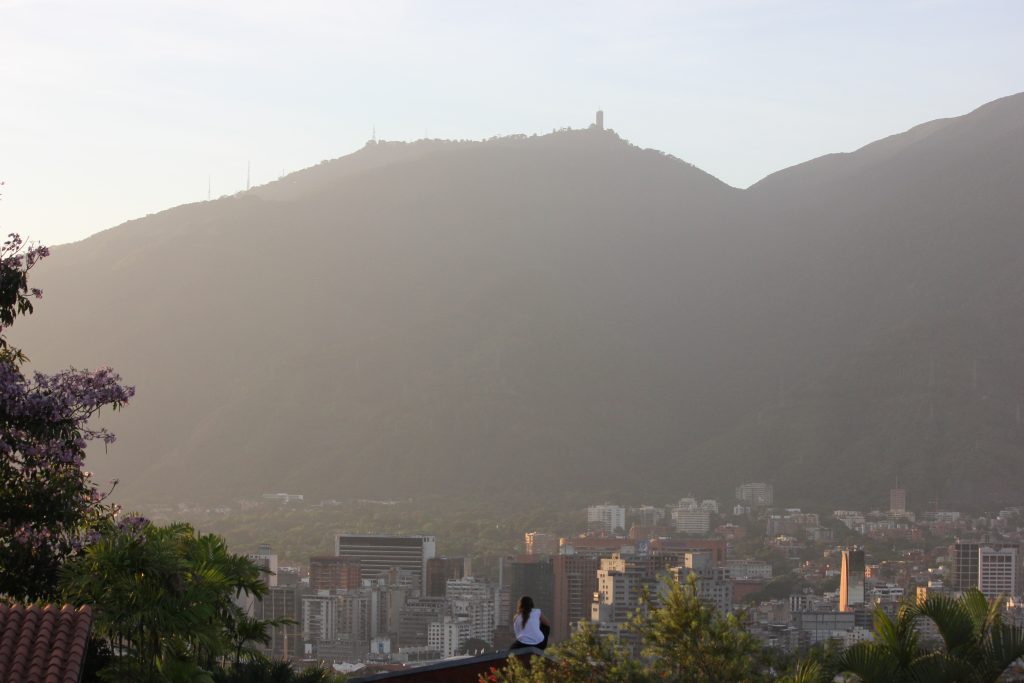
The displacement crisis in Venezuela can be traced back to the early 2010s, beginning with Hugo Chavez’s presidency. While rising oil prices enriched Venezuela and emboldened its economy, the lack of long-term economic planning became a main driver of future displacement. Today, Venezuela is marred by hyperinflation, and its population struggles to afford basic necessities. In 2018, inflation in Venezuela exceeded 1 million percent. Persistent economic sanctions have added to the already difficult situation in Venezuela, leading to many shortages of food and medical supplies.
Under Nicolas Maduro’s regime, the government began to crack down on anti-government demonstrations, resulting in many extrajudicial killings. In 2017, the UN reported over 5,287 killings by the Venezuelan National Police’s “Special Action Forces.” An additional UN report found that there were 1,569 killings in the first six months of 2019 alone. The Maduro regime has also made it exceptionally difficult for humanitarian agencies to operate within Venezuela, denying much aid to the starving population.
The COVID-19 Pandemic worsened health and safety conditions for the country, as Venezuela was not equipped to deal with the necessary health measures and lacked access to vaccinations or proper health services.
Half of the Venezuelan refugee and migrant population displaced around South America cannot afford three meals a day and lacks access to housing. Hundreds of thousands of Venezuelans remain without documentation or permission to stay in nearby countries, denying them access to basic rights.
Six years ago, Morella Perez-Suels left Venezuela to search for a better life in the U.S. Today, she serves as the Education Services Manager at World Relief Spokane, offering hospitality and education for refugees and migrants.
Unique Challenges in the Venezuelan Crisis
The Venezuelan displacement crisis is unique because very few displaced Venezuelans are refugees. Of the 7.13 million displaced, only 211,000 are registered refugees with the UNHCR. Approximately 1 million are asylum-seekers, primarily seeking protection in Peru and the United States. Since poverty and economic downturn are not enough to qualify for refugee status, migrants have fled to neighboring countries seeking temporary protective status and humanitarian parole.
Ukraine
The ongoing war between Russia and Ukraine has led to over 8 million refugees and migrants fleeing the country. There are approximately 17.6 million people in need of urgent humanitarian assistance, of which 6.5 million are IDPs.
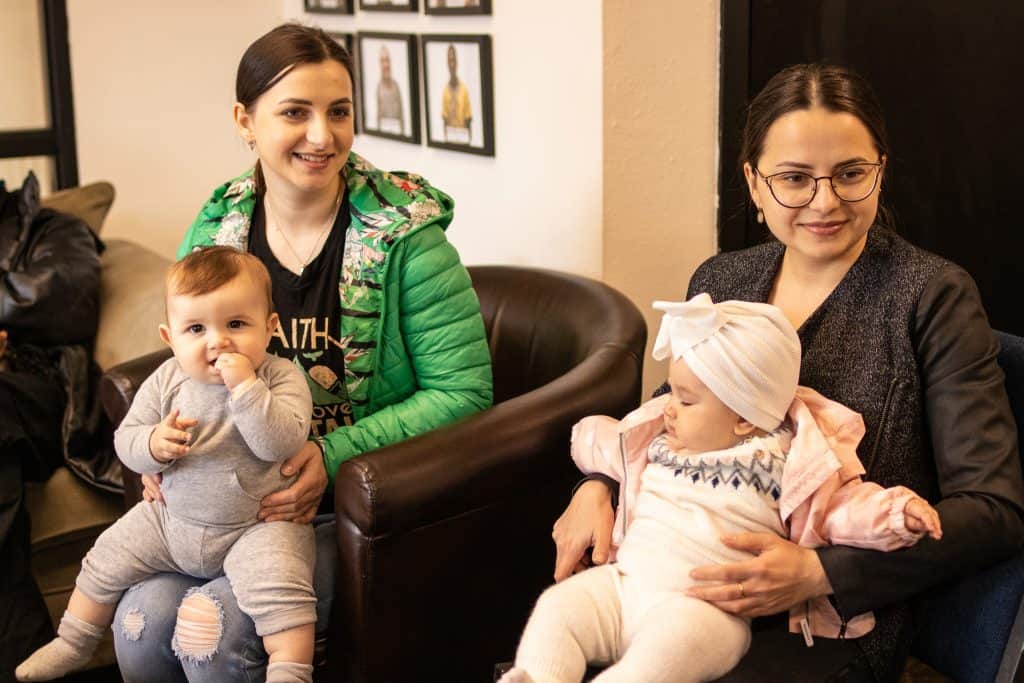
The war in Ukraine was no standalone event — years of political tension and a complicated history foreshadowed the crisis. Russia-Ukraine relations have been generally tense since Ukraine left the Union of Soviet Socialist Republics in 1991. In 2014, Russia capitalized on the political instability of the Ukrainian Revolution. The subsequent ousting of President Viktor Yanukovych allowed Russia to seize Crimea. The war in Ukraine destroyed vital infrastructure and led to many civilian casualties. These factors served as the trigger for the displacement we see today.
Of the 8 million displaced people outside of Ukraine, approximately 5 million have received temporary protection or similar national protection, according to the UNHCR. This means that UNHCR doesn’t legally recognize the majority of Ukrainians as refugees. Thankfully, as the city of Kyiv became safer, the UNHCR was able to repatriate over 4.5 million Ukrainians back to their homes.
Afghanistan
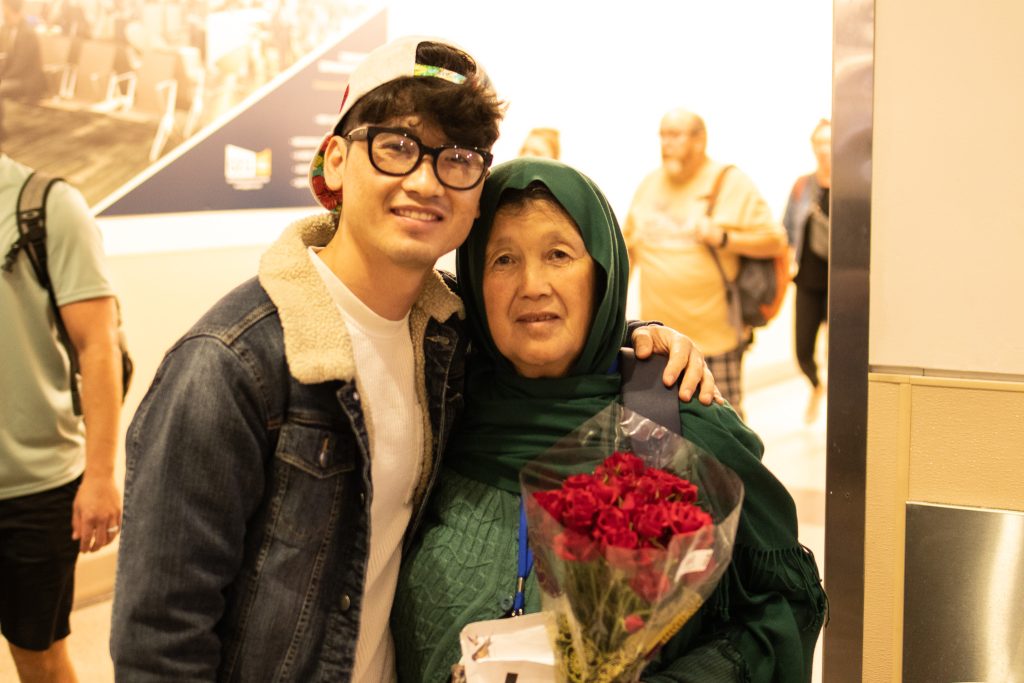
While the recent US withdrawal from Afghanistan in 2021 started the latest displacement crisis in that country, many prior factors had made the region unstable.
Afghanistan’s history is complex, and there are approximately 14 major ethnic groups within the country, leading to a unique system of governance while holds its own tensions.
As well, World Food Programme reports show that over half the population faces food insecurity and acute hunger. Afghanistan is the largest opium producer in the world and therefore faces many issues with drug trafficking and crime. Once the US withdrew and the Taliban again took control of the country, many citizens began to face persecution once more.
World Relief Spokane has been fortunate to support many Afghans throughout the last few years. In this blog post, Ibadullah Rasoli recounts his journey from Kabul to Spokane.
Why are displaced people important to our communities?
What does all of this have to do with us here in the United States? When this hardship takes place so far away from our communities, it seems difficult to understand why it is important that we support displaced people.
Supporting refugees and migrants is integral to American history and culture.
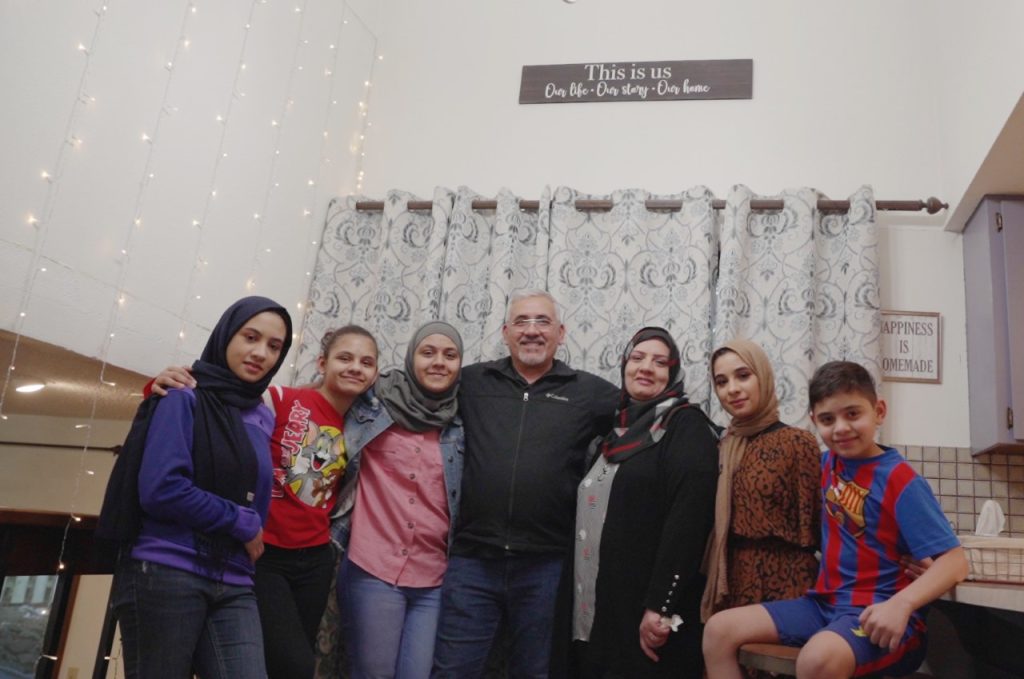
The United States is a country built on immigration. Cross-cultural understanding and collaboration are foundational pieces of American values. Today, approximately 44.8 million migrants live in the United States, making up 13.7% of the population. The United States has resettled over 3 million refugees since the Refugee Act was passed in 1980. Migrants deepen and enrich American culture and its diversity of experience, language, food, and customs. A study by the International Institute of St. Louis shows that refugees help improve cross-cultural understanding. They also help locals appreciate cultural diversity and see the shared values and beliefs across different cultures.
Refugees and migrants support local economies.
In 2017, the U.S. government conducted a study that found that refugee contributions exceed the initial cost of resettlement. From 2004-2015, the government spent $206 billion on refugees. During that period, refugees generated over $269 billion in tax revenue. It’s also important to note that refugees have a strong entrepreneurial spirit. Refugees are twice as likely to start a business than regular taxpayers.
We have a spiritual duty to be in solidarity with the oppressed and marginalized.
Jesus built his ministry on the principle of radical inclusion, of empowerment for the most vulnerable in society. He taught us that to fully capture God’s love, we have a duty to uphold the dignity of such people. Being in touch with God’s love means loving the stranger and the foreigner. Regardless of how far away a suffering community might be, we still have a duty to support them.
He makes sure that orphans and widows are treated fairly; he loves the foreigners who live with our people, and gives them food and clothes. So then, show love for those foreigners, because you were once foreigners in Egypt.” — Deuteronomy 10: 17-19
I was hungry and you gave me food, I was thirsty and you gave me drink, I was a stranger and you welcomed me.– Matthew 25: 35
The end of displacement begins with you.
Here at World Relief, our mission is to support people who have been forcibly displaced. Sometimes that means action in our local community, helping refugees adjust to life in America, teaching them how to use the bus system, or finding them work. Sometimes that means tackling poverty or malnutrition abroad and stopping displacement at the source.
World Relief relies on the generosity of its donors and volunteers. For World Refugee Day, please consider supporting our efforts.
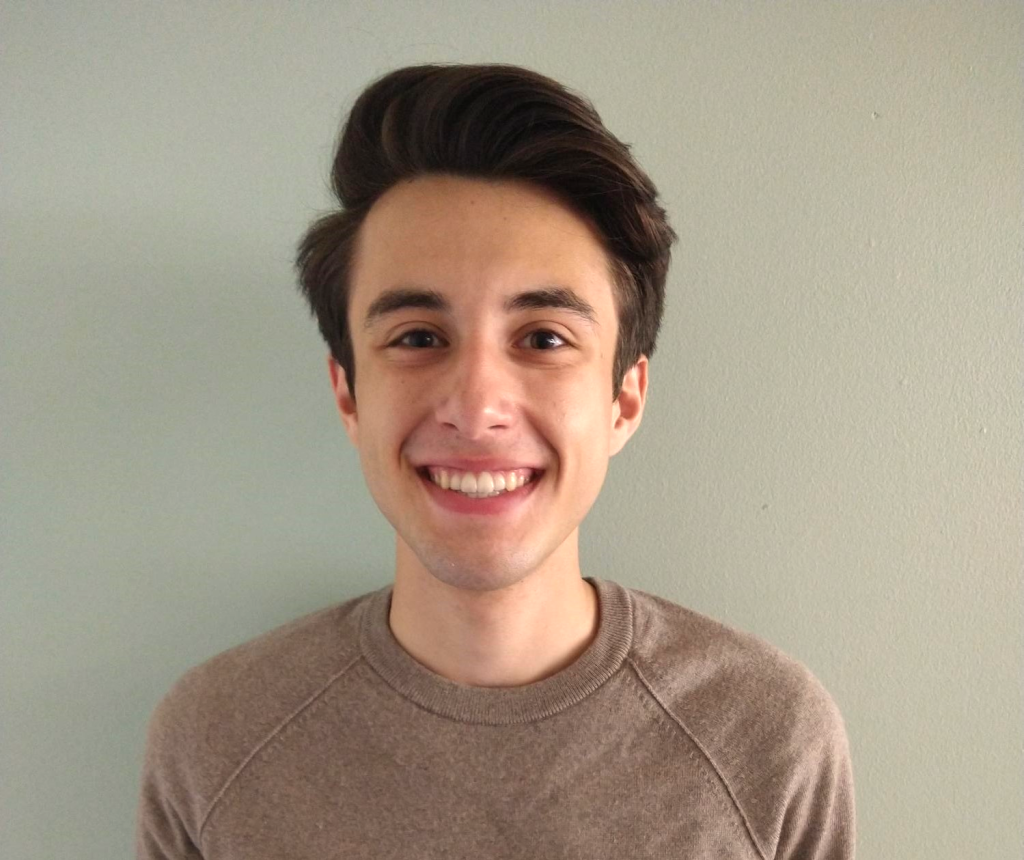
Antoine Herrbach is a 2023 Summer Intern for World Relief. He is a Senior at Gonzaga University, studying Political Science, History, and Economics.
A Prayer for Refugees
Every June, we at World Relief invite people like you to join us in honoring World Refugee Day. And we believe one important way we can walk alongside our refugee neighbors is through prayer.
Prayer is a source of power and light in dark times. As we face the largest displacement crisis in recorded history with over 108 million displaced people and 35.3 million refugees worldwide, prayer is an essential part of our response.
For me, prayer has been integral to my growth as a Christian. It has given clarity to big life decisions, healing to sicknesses and physical pain and it has been a practice of vulnerability and unity within Christian community. Prayer is the simplest act of being and communicating with God our Father.
Will you join me today in his presence as we pray for refugees together?
Father, I still my heart and mind to focus on you. Speak, your child is listening.
(Pause in silence and prayer)
Read: “The Lord your God is supreme over all gods and over all powers. He is great and mighty, and he is to be obeyed. He does not show partiality, and he does not accept bribes. He makes sure that orphans and widows are treated fairly; he loves the foreigners who live with our people, and gives them food and clothes. So then, show love for those foreigners, because you were once foreigners in Egypt.” — Deuteronomy 10: 17-19 (GNT)
How wonderful and powerful you are, Lord. Help me to reflect you and love like you.
(Pause in silence and prayer)
Today, I pray for those who are vulnerable and who may not be able to see your might and presence in their lives at this moment. I pray for those fleeing violence, wars and persecution; be their guide and comfort. For the millions of refugees around the world, waiting for justice and a new home.
(Pause in silence and prayer)
I pray for my city and community. May it be a place of safety, support and solace for those in distress.
(Pause in silence and prayer)
Lord, I think about our nation’s leaders and government. May they use their positions of power to work towards justice and righteousness.
(Pause in silence and prayer)
I pray for your church, that it would be a city on a hill, shining bright as a beacon for all who seek a new and better way.
(Pause in silence and prayer)
Lastly, I stand firm, covered with the armor of God, and pray against the work of the enemy, who comes to kill, steal and destroy.
(Pause in silence and prayer)
I offer this prayer to you and declare that yours is the kingdom and the power and the glory forever. Amen.
Want to learn more about refugees and how you can celebrate their lives and stories this World Refugee Day?
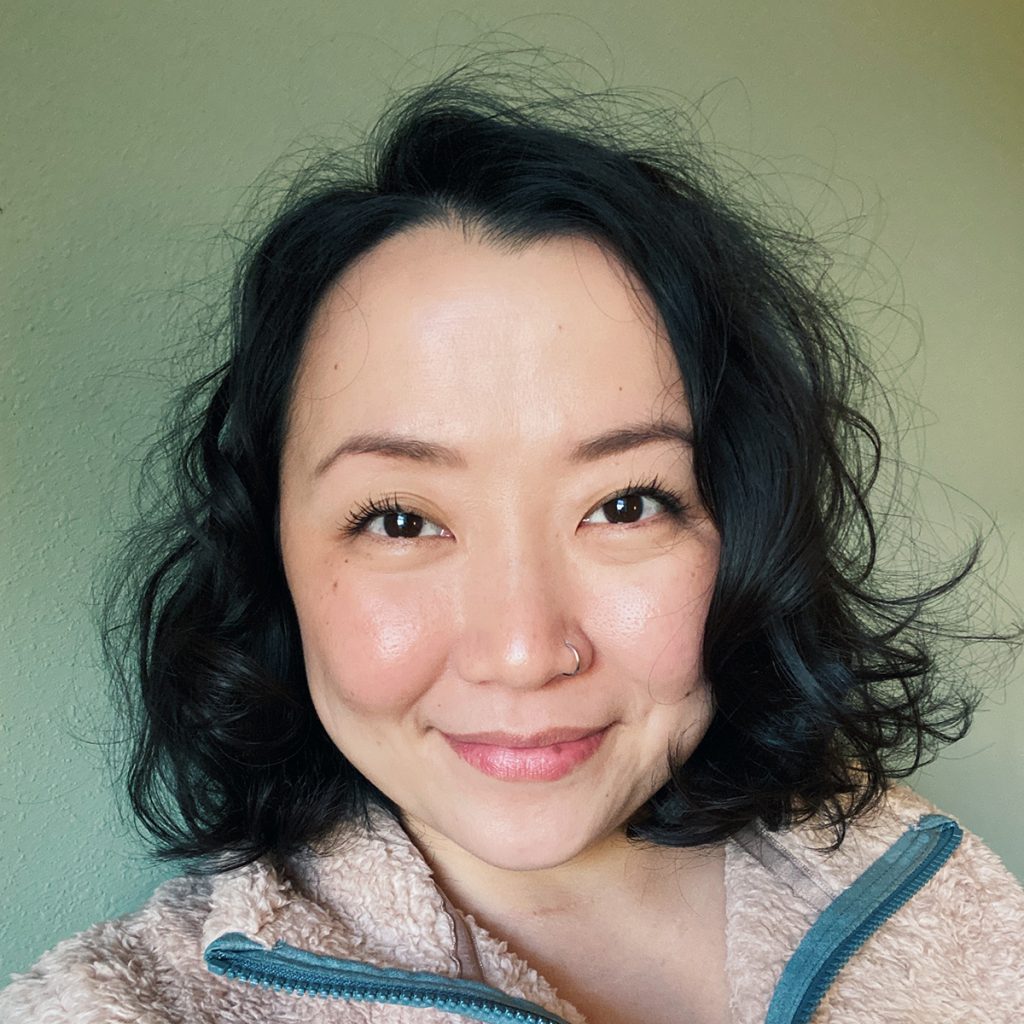
Nou Huse works at World Relief as the U.S. Good Neighbor Team (GNT) Program Coordinator. She formerly served as the Volunteer and GNT Coordinator at World Relief Fox Valley. Before joining the World Relief team, she lived seven years abroad working in education and serving in urban missions. She aims to act justly, love mercy and walk humbly with God in all things.
The Drivers of Mass Displacement: Ukraine and Beyond
Nyakaar abandoned her home in South Sudan when armed conflict threatened her village. She found safety in the Bentiu Protection of Civilians camp, a U.N.-run camp for internally displaced South Sudanese people where World Relief operates health and nutrition programming. Shortly after arriving, Nyakaar gave birth to her son, Bone.
In the world today, a record-breaking 117.2 million people have been forced to flee their homes. That’s about 1 in every 78 people that live across the globe.*
While many of us think of refugees when we hear the words “mass displacement,” the majority of displaced people worldwide are actually internally displaced people like Nyakaar and Bone.
The causes of mass displacement are many, and the repercussions reach far and wide. Today, we’re taking a bird’s eye view of the topic of mass displacement to help you understand what causes people to leave their homes, who is fleeing and how people across the globe are joining World Relief to address the drivers of mass displacement and care for those who are displaced.
*These numbers reflect the latest estimates from the U.N. High Commissioner for Refugees. This blog was originally written May 10, 2022 and updated on April 11th, 2023.
What causes mass displacement?
People are displaced from their homes for myriad reasons — persecution, conflict, violence, human rights violations and climate-related factors to name a few.
The Russian invasion of Ukraine has been the most recent example of how war can force millions of people to flee their homes. However, there are many other conflicts and crises occurring in the world which are also causing people to flee their homes.
For example, violence in the Darfur region of Sudan has caused many to flee in search of a safe place to live, farm and raise their children. Some of these families remain internally displaced while others have fled across international borders into Chad and other surrounding countries. Apart from the unfolding crisis in Ukraine, 68% of the world’s refugees have come from the following five countries: Syria, Venezuela, Afghanistan, South Sudan and Myanmar. Though crises like these have received varying levels of media attention, the needs of the displaced remain critical.
Refugees, Asylum Seekers and IDPs
Many times, displaced people flee to regions or countries surrounding their home region, while a smaller percentage relocate to a more distant country. A displaced person can fall under several categories:
- Internally Displaced People
- Refugees
- Asylum Seekers
Internally Displaced People make up the largest category. These are people who have been displaced within their own country. They have been forced to flee their home and region, and have resettled in a different part of the same country in which they already lived. Currently, 61.2 million people are classed as Internally Displaced People.
Refugees make up the next largest group of displaced people. These are people who have fled war, violence, conflict or persecution and have crossed an international border to find safety in another country. It’s likely that you’ve read stories of refugees like Bohdan, Abdinasir and Amira — all people who left their home countries due to conflict or persecution, applied for refugee status and were resettled right here in the United States.
Today, there are about 29.3 million people with refugee status in the world.
In 2022, the U.S. has agreed to resettle up to 125,000 refugees plus an additional 100,000 Ukrainians who have fled the Russian invasion. As is evident, there are far more refugees in the world than can be resettled even in a country as large and as resourced as the U.S.
Asylum seekers make up the third and smallest category of displaced people. These are people who have fled to another country, but who have not yet been granted official refugee status. These women, men and children may have to wait years to receive an official status.
Currently, there are about 5.6 million asylum seekers living around the world today.
Host Communities
One final impacted group remains to be identified, and these are the host communities.
Host communities have not been displaced from their homes, but the swift influx of refugees into their communities severely impacts those who already lived in the region. Often host community members need the same support that refugees, asylum seekers and internally displaced people typically receive.
A large number of refugees can mean reduced access to land and water and can cause a scarcity in resources. For example, in Sudan, conflicts have broken out over land usage, as host communities and displaced people seek to utilize the scarce land and water resources available in the host community area.
World Relief works within these communities to increase access to clean water as well as facilitate peace committees to solve interpersonal conflicts before they grow.
What else is World Relief doing to help?
After a person is displaced, they can either choose to return to their home, or they can resettle in a new location. However, for many, the option to return home is not a viable one, as drivers of displacement often last for generations. World Relief is currently serving displaced people across the globe in several ways:
- In DR Congo, a country that’s facing one of the world’s worst hunger crises, World Relief works with host communities and with displaced people who have returned home by providing agricultural training and farming supplies to help families grow crops to feed their families and sell the surplus in local markets to earn an income.
- Globally, World Relief serves refugees who have crossed the border into our international countries of operation, working with local partners to provide emergency aid to families living in temporary shelters.
- In the U.S., World Relief partners with the U.S. government to resettle refugees. We also serve asylum seekers and other immigrants by providing community connections, legal services and other vital services like ESL classes, job training and more.
- In Sudan, South Sudan and DRC, World Relief serves internally displaced people by equipping local village peace committees and providing health, nutrition, WASH, education, agricultural programming and more.
- World Relief also advocates for the vulnerable when injustice occurs. We believe speaking up along with the poor and oppressed is an important witness to a watching world about the character of Jesus.
Mass displacement remains one of the largest and most challenging crises of our time — a truth that will take intentional coordination and investment between local and international communities, churches, governments and non-profit organizations to address.
At World Relief, we believe Jesus came to earth to love the vulnerable. Jesus didn’t bring hope and salvation from a distance. Instead, he came to us, showed us love and suffered with us. Whether we are welcoming refugees and asylum seekers into our own communities or providing relief to those displaced overseas, we get to be the hands of feet of Jesus, sharing his love to a world in need.
To learn more about how you can help refugees and displaced people in the U.S., visit our private sponsorship page.

Lydia Dawson served as World Relief’s Humanitarian and Disaster Response Unit Program Officer in Sudan, and in disaster response worldwide. Prior to joining World Relief, Lydia worked in homeless services and community development in Oregon and California. She is passionate about equity and honor for underrepresented groups, both locally and internationally.
“When You Cook, You Have To Cook From Your Heart”
OPENING THE COMMERCIAL TEACHING KITCHEN IN KING COUNTY
Several years ago, World Relief Western Washington (WRWW) hosted a listening session where the local refugee-immigrant community could gather and openly share their needs, struggles, and hopes. What resulted was a dream we decided to help make a reality. With the support of funding from King Conservation District, The WA Commerce Department, the U.S. Small Business Administration, private donors, and generous architects and construction crews, we constructed a commercial teaching kitchen. Soon the 1,215 sq. ft. commercial teaching kitchen will be complete and open for programming including cooking and nutrition workshops and a food industry career pathway course!
Cooking is important to us. We learned this as we listened to the community. Through food we build community, sharing in each other’s joys and sorrows, and inspiring dreams as we nourish our bodies. Listen long enough to the stories of the people around you, and you will see this too.
“When you cook, you have to cook from your heart.”
—Cooking advice shared by a recent arrival from Afghanistan who loves experimenting with traditional recipes and cooking for his friends and family.
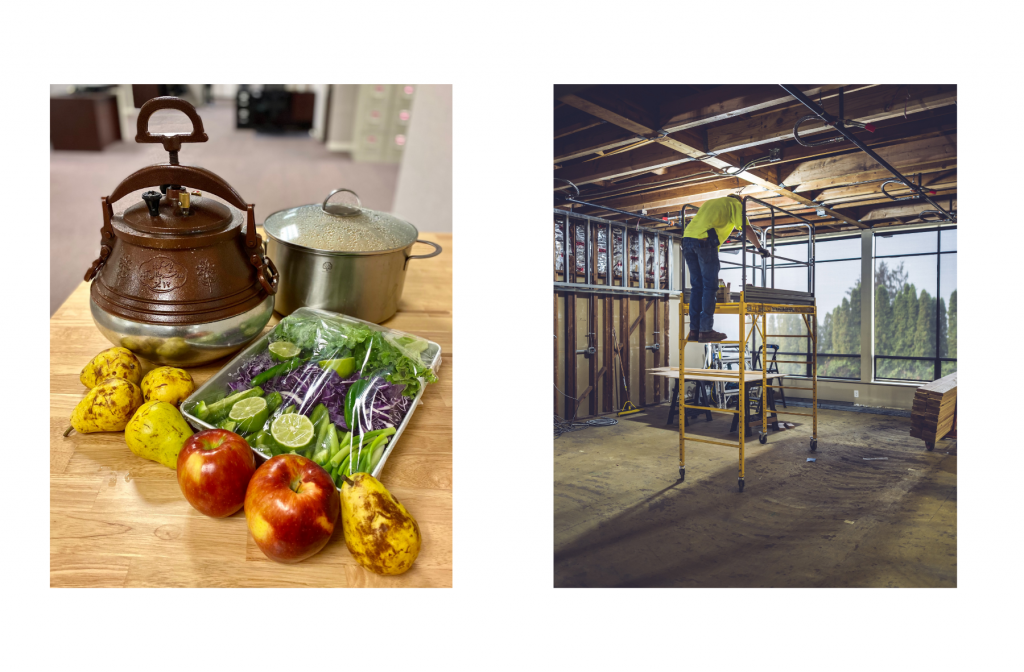
A KITCHEN TO GATHER PEOPLE
“I love to bring joy to people with my baking,” says Katya, a new arrival from Ukraine. “You become a part of people’s special events [when you bake food for them]. You become a part of the joy.” Katya owned a catering business back in Ukraine. Here in the US, she has found joy in preparing baked goods from recipes passed down from her grandmother. Her baked goods tell a story of her family and her homeland of Ukraine. Katya dreams of one day opening a bakery here in the US so more people can share her joy.
We are excited for Katya to be one of our featured guest chefs this summer in a series of cooking workshops hosted by WRWW. Through refugee and immigrant-led cooking classes, community members will have the opportunity to gather, learn from our new neighbors, and celebrate the diversity of our community. Through food we can appreciate the many cultures that shape our growing community.
Our food tells a story about where we are from and who we are now.
A KITCHEN TO BRING NOURISHMENT
Pausing to prepare food and eat reminds us of our human need. Our need for food is not undignified in its existence, but a sacred reminder of our humanity and our beautiful calling to nourish mind, body, and soul daily.
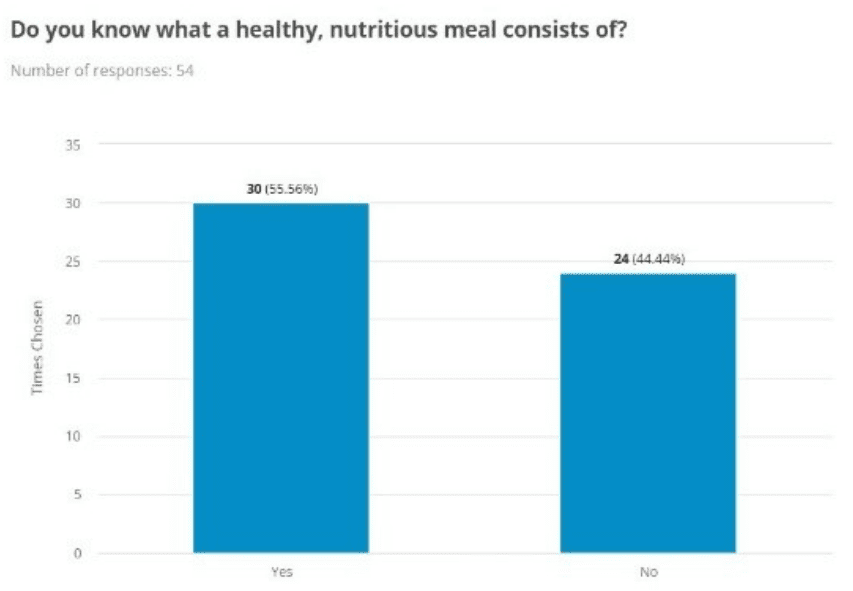
How we respond to our needs matters. The food we eat matters.
According to a May 2023 survey conducted by WRWW, a high percentage (approx. 44%) of refugee & immigrant respondents indicated that they do not know what a healthy, nutritious meal consists of.
The WRWW Commercial Teaching Kitchen will offer nutrition classes and healthy cooking workshops, equipping refugees and immigrants with the knowledge and skills they need to prepare nourishing food for themselves and their families.
Healthy food brings our bodies strength, healing and vitality.
A KITCHEN TO INSPIRE DREAMS
Refugees and immigrants arriving in Washington have left much behind. But they also bring so much with them. They bring pieces of their culture, creativity, ambition, skills and dreams. They come with so much to offer to our community.
World Relief Western Washington believes in the inherent resiliency of refugees and immigrants and is committed to coming alongside the refugee-immigrant community to equip them to thrive in their new home. Developing cooking skills and building knowledge and connections within the food industry provides refugees and immigrants with more opportunities for employment and creative economic endeavors. Programming won’t only focus on the culinary arts or business pathways. Workshops will be designed in such a way as to draw out creativity, instill confidence, and inspire dreams both new and old.
With the completion of the WRWW Commercial Teaching Kitchen we celebrate the realization of one dream and look forward to the start of many more!
“World Relief Cup” Raises Support for Refugee Resettlement Services
In recognition of World Refugee month in June, World Relief Western Washington is hosting the inaugural World Relief Cup soccer tournament to celebrate the resilience and contributions of local refugees.
The tournament begins at 9 a.m. and the championship games occur at 6:00 p.m. The final awards ceremony and celebration will take place at 7:30 p.m. Individuals and teams can raise support for refugees rebuilding their lives in Western Washington by registering to participate in the tournament or by sponsoring participants.
Saturday, June 10 at Valley Ridge Fields
“As we celebrate the resiliency and courage of those who have been forced to flee their home country, The World Relief Cup event will open up opportunities for different communities to come together,” said Medard Ngueita, the Executive Director of World Relief Western Washington.
“We hope the event will provide an opportunity to not only celebrate together, but to help raise awareness around mass displacement and the need for better integration of our new neighbors.”
Through the World Relief Cup, the Western Washington offices of World Relief aim to increase awareness of the challenges refugees face in the resettlement process and provide support that empowers them to rebuild their lives in their new community. The event will include competitive soccer tournaments, as well as booths, food trucks, and other fun activities that will be open to the community.
“Refugees are our friends and neighbors, and we encourage this community to embrace them as such.”
said Annie Frisbie, Director of Strategic Advancement, World Relief Western Washington.
By offering our support to these new community members as they acclimate and seek to rebuild their lives here in Western Washington, we treat them with the dignity and respect they deserve as individuals made in the image of God.”
Community members are encouraged to participate in the World Relief Cup by volunteering to help with the event, signing up to play with a team, or sponsoring teams or individuals who are participating in the tournament. To register for this event as a team or individual, please visit the World Relief Western Washington events page and reserve a spot: https://worldrelief.org/world-relief-cup
Thurston County Hosts “From Home to Home” Refugee Resettlement Simulation Event
In recognition of the thousands of refugees who are forcibly displaced from their home countries each year, the Thurston County office of World Relief is hosting “From Home to Home” – an experiential exhibit demonstrating the challenges these refugees face when coming to the United States. The event will take place in Olympia on May 19 – May 22, with sessions available both for groups and individuals from 8:00 a.m. to 7:00 p.m. at 812 Central St SE. Sessions in the exhibit will simulate the common decisions and difficulties refugees and asylum seekers face on their journey to resettlement.
“Refugees and asylum seekers who are forcibly displaced from their homes have experienced challenges and dangers that many of us cannot begin to comprehend,” said Annie Frisbie, Director of Strategic Advancement. “Through this exhibit, we hope to create awareness of both the trauma of displacement and the difficulties they endure on their journey to the United States. By doing so, we can better work together as a community to ensure those who have experienced such difficulty can find support in Thurston County.”
Through this exhibit, the Thurston County office of World Relief is aiming to increase understanding of the unique vulnerabilities of refugees and asylum seekers who have been forcibly displaced and highlight the need to assist them in rebuilding their lives in the United States. This exhibit to increase awareness is coupled with the office’s continuing work serving displaced individuals in Western Washington by assisting them in securing safe housing and providing cultural orientation services.
“Refugees and asylum seekers need our support to both navigate an unfamiliar culture and an uncertain future in their new homes,” said Annie Frisbie. “They have suffered significant challenges before and during their journey here, but our community has an opportunity to demonstrate God’s love for them by welcoming them with open arms and helping to ease their transition to rebuilding lives in the United States.”
Schools, local businesses, first responders, faith groups, and individuals are all encouraged to participate in the exhibit. To register for this event as a group or an individual, please visit the World Relief Western Washington “From Home to Home” events page and reserve a spot: https://worldrelief.org/from-home-to-home










